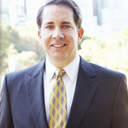Can Swelling After Blepharoplasty Be Permanent?
I had lower blepharophasty Nov 10, but since the one eye stayed swollen the doctor opened it up again to see if any was wrong on Dec 23. He claimed that the muscle had slightly folded on itself and he straightened it out. So, it's four weeks today, and it's still swollen each morning with makes that circular indentation where the puffiness meets the eye socket and makes me feel like a freak. Last night it actually looked better, but today when I woke up it was more swollen than ever and it has remained swollen today. I have hardly left the house for the past two months, as I am so self conscious. Evenings are a little better, but I still don't feel like me and I keep wondering if people are noticing it since it can look better or worse depending on the lighting. The other healed in two weeks. Could this problem be permanent?









